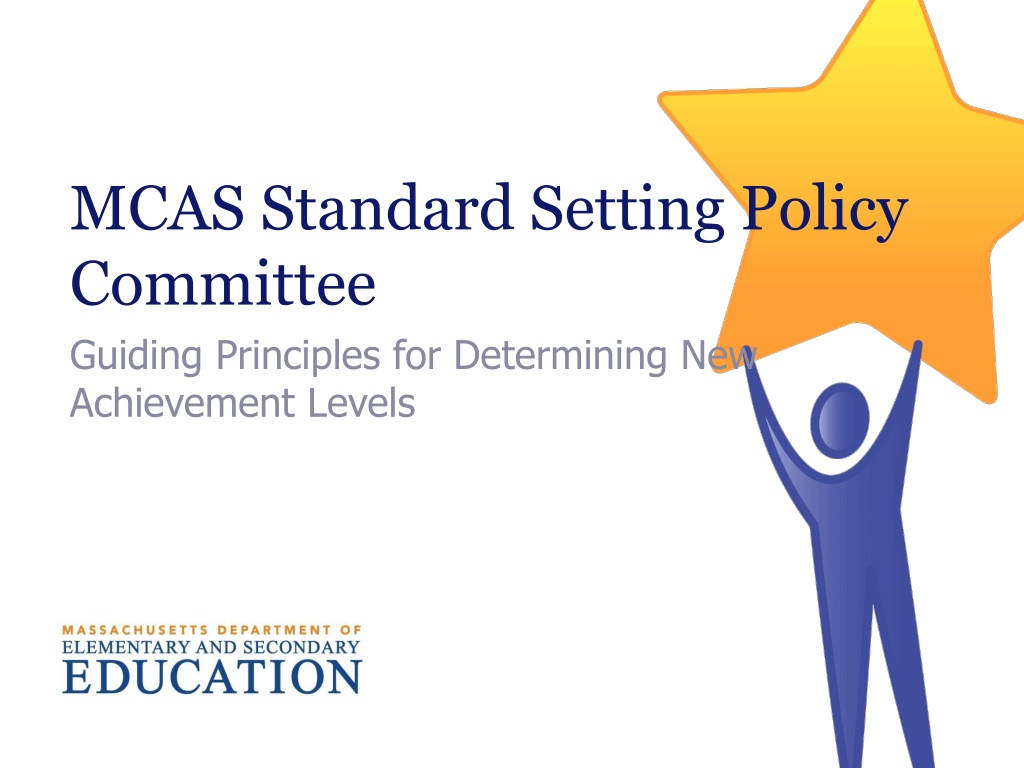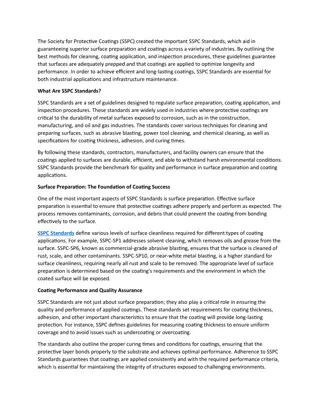
Guiding Principles for Achieving Academic Success
"Explore the guiding principles set by the MCAS Standard Setting Policy Committee for determining new achievement levels. Learn about the importance of clear communication, positive achievement level names, and coherence in expectations across grade levels."
Download Presentation

Please find below an Image/Link to download the presentation.
The content on the website is provided AS IS for your information and personal use only. It may not be sold, licensed, or shared on other websites without obtaining consent from the author. If you encounter any issues during the download, it is possible that the publisher has removed the file from their server.
You are allowed to download the files provided on this website for personal or commercial use, subject to the condition that they are used lawfully. All files are the property of their respective owners.
The content on the website is provided AS IS for your information and personal use only. It may not be sold, licensed, or shared on other websites without obtaining consent from the author.
E N D
Presentation Transcript
MCAS Standard Setting Policy Committee Guiding Principles for Determining New Achievement Levels
What are the guiding principles? The standard setting policy committee (SSPC) met in fall 2016 for one and a half days of facilitated meetings, where they first heard background information on the MCAS program and the history of MCAS achievement levels, learned about the uses of descriptors and achievement levels, and examined examples from other assessment programs. The following slides were developed during these meetings as a set of guiding principles. Key among them are: the need to develop positive and motivating achievement level names; the importance of clear communication to parents and students regarding readiness to engage in academic activities at the next level; and the desire to communicate shared responsibility for student success. 2 Massachusetts Department of Elementary and Secondary Education
Guiding Principles - 1 A primary audience for the reporting of achievement level results is parents and students. At all grades, the reporting of achievement level results should convey information about student readiness to engage in academic activities at the next grade level. College readiness determinations should not be made based solely on grade 10 achievement, but graduation readiness can be signaled. Clear communication is essential. Achievement levels and reports should convey How the student performed Whether that is good enough How that performance compares to others 3
Guiding Principles - 2 Achievement level names (labels) should be positive and motivating The state must be mindful of the unintended consequences that achievement level labels can have on individual students, educators, schools, and communities. There should be consistency across the assessment and accountability systems (e.g., Level 5 should not indicate high performance in one system and high need in the other). 4
Guiding Principles - 3 Ensure that there is coherence in achievement level expectations across grade levels Over time, claims that students are on track or prepared should be supported by evidence and not based solely on judgment. Achievement standards should be monitored over time to ensure that claims are supported. The assessments must be part of a coherent system of high quality content standards, instruction, and student support. 5

